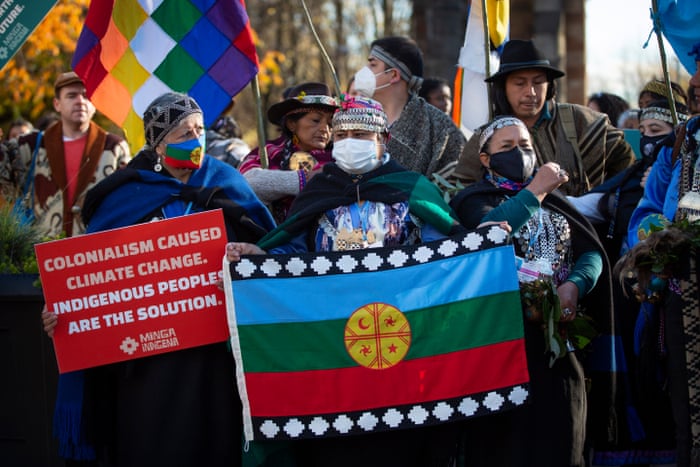Climate Justice – Just Transition Donor Collaborative

Addressing the root causes of the climate crisis – deeply unjust social, political, and economic structures – demands transformational change across all sectors of society. The current structures have put wealth and power in the hands of a polluting few. Yet, those who have contributed least to climate change bear the brunt of its catastrophic effects, including deadly heatwaves, catastrophic fires, severe droughts, and extreme flooding.
Climate justice (CJ) and just transition (JT) are frameworks for action rooted in social justice that shift power and resources to those on the front lines of climate change. These approaches can deliver bold, innovative, and effective climate solutions that protect the rights of local communities and drive the systemic change we all need to thrive.
At the same time, philanthropy is beginning to recognize that simplified, “silver-bullet” solutions to the climate crisis are insufficient for driving transformational change. Instead, intersectional approaches – those that recognize the overlapping systems of discrimination across factors such as race, ethnicity, and gender – address the immediate impacts of the climate crisis and many of today’s most pressing problems, including food and water insecurity, migration, deadly conflict, and economic inequality.
The opportunity presented by intersectionality, and the rising demand for more justice-centered structures, requires philanthropies to change how we operate. We must recognize our sometimes harmful legacies while exploring where intersectionality can help us better support those on the front lines of injustice. This is especially true for those based in the historically colonized countries of Africa, South and SE Asia, and Central and South America, as they face the interconnected crises of climate change and drastic inequality.

The Climate Justice-Just Transition (CJ-JT) Donor Collaborative was set up by six philanthropies in 2021 to shift power and philanthropic resources to just and equitable climate solutions led by those on the frontlines who do not yet have their due share of voice in policy-making and whose efforts are critically under-resourced.
Read Farhana Yamin’s vision for centring justice and just transition in her Manifesto for Justice for COP26 and Beyond.
CJ-JT Donors
Funding for the Collaborative has been given by:
- Climate Justice Resilience Fund
- ClimateWorks Foundation
- IKEA Foundation
- Oak Foundation
- Porticus
- Robert Bosch Stiftung
These organisations are already supporting social justice and climate action worldwide. Yet, in light of the global pandemic, it is clear that our efforts and funding of front line grantee partners need to be scaled up and improved. We must all work together through collaborative grantmaking to support approaches that reimagine and re-shape the world before communities fall even deeper into cycles of poverty and deprivation.
Additional funding has been provided for CJ-JT pilots by US AID, Climateworks, Climate Emergency Collaboration Group (CECG), SAGE Foundation, Doc Society, Porticus and Black Indigenous Liberation Movement. Impatience Limited has acted as a fiscal host for the CJ-JT Donor Collaborative.
CJ-JT Partners
The CJ-JT Collaborative has developed strategic partnerships to increase resourcing to local civil society organisations addressing the impacts of climate change and working to achieve climate justice for their communities.
Core partners of the Collaborative include:
- Adeso
- Green Africa Youth Organisation (GAYO)
- Southern Africa Trust (SAF)
- Youth Climate Justice Fund (YCJF)
Access the ClimateJusticeCollab Website
The Collaborative’s work has three elements:
- Educational and learning opportunities in the form of webinars.
Access video recordings of past webinars here - Landscape and mapping of organisations in the Global South working on Climate Justice & Just Transition in the form of an open-source wiki.
Access the Climate Justice Map here - Convening high-level events for donors and practitioners to share insights and create joint strategies.
Access video recordings of our past high-level events here
The Collaborative’s Current Work To Date:
In just two years, the CJ-JT Donor Collaborative has engaged over 2,200 people in its learning journey for philanthropy, mapped 1,600+ organisations working on CJ and JT across the Global South in the Climate Justice Map, and delivered over $725,000 in nimble and trust-based grants to over 140 activists from 31 countries across the Global South. The Collaborative has catalyzed over $3.6m in new, additional funding for youth, Indigenous and Global South-led efforts and is piloting a climate justice fellowship, convening CultureCOP and setting up a network for funding youth-led climate justice solutions and movements.
- 2,200+ participants across our learning journey
- 1,600+ global south organisations and networks mapped
- $700k small grants delivered to 141 activists from 31 countries
Ready to Join?
If you’re curious or ready to support our efforts as a philanthropic funder or frontline expert, contact the Collaborative’s Coordinator Farhana Yamin, info@climatejusticecollab.org and Heather MacGray, Director, Climate Justice Resilience Fund: cjrfund@gmail.com
CJ-JT Educational Events & Webinars
Each webinar was held in collaboration with and co-led by the communities and groups of people who experience climate injustices. Intersectional topics have included: Loss & Damage, Agroecology, Climate Finance, Indigenous People’s & Energy Access, Racial Justice and Youth Movement Building.
Please find below the educational events the collaborative has convened:
Upcoming Webinar: Empowering African Youth for the fight against Climate Action (9 November 2023)
01) Disability and Climate: Learn how the climate crisis impacts disabled people and why amplifying the voices of those with disabilities is key for climate justice. (28 June 2023)
Link to Video Recording
Link to Webinar Summary
02) Webinar: Moving the Money: What are the current challenges with directing and transferring funds to where it’s most
needed and what can we do about it? (26 April 2023)
Link to Video Recording
Link to Webinar Summary
03) The high-level event at COP27: Beyond Philanthropy As Usual: How Might We Accelerate Climate Action Rooted In Justice? (16 November 2022)
04) The high-level event at COP27: Stepping Up Support for A Just Transition: Updates and Perspectives from Philanthropy, Pioneers and Frontline Communities. (14 November 2022)
05) The high-level event at COP27: Youth & Philanthropy World Café: It’s Time to Fund Youth Movements (09 November 2022)
06) Webinar: Youth Movement Building: Can re-granters step up to address the gaps? (19 September 2022)
Link to Video Recording
Link to Webinar Summary
07) The high-level convening at Bonn: How might future COPs shift power and resources for climate justice and just transition in the Global South? What steps and strategies can we take to make big wins/gains in Sharm el-Sheikh? (07 June 2022)
Private video recording available on request.
08) The high-level convening at COP26: Funding the Justice Reset: From Glasgow to COP27 (03 November 2021)
09) Webinar: Racial Justice and the Decolonisation of Philanthropy (01 July 2022)
Link to Video Recording
Link to Webinar Summary
10) Webinar: Centering Justice in Global Climate Finance Governance on the Road to COP27 (25 May 2022)
Link to Video Recording
Link to Webinar Summary
12) Webinar: How can Agroecology Deliver Climate Justice in Africa? A Farmer’s Perspective (26 November 2021)
12) Webinar: Reimagining and Rebuilding the World: Indigenous Peoples and Energy Access (09 September 2021)
Link to Video Recording
Link to Webinar Summary
13) Webinar: Climate Justice and Climate Finance (22 July 2021)
